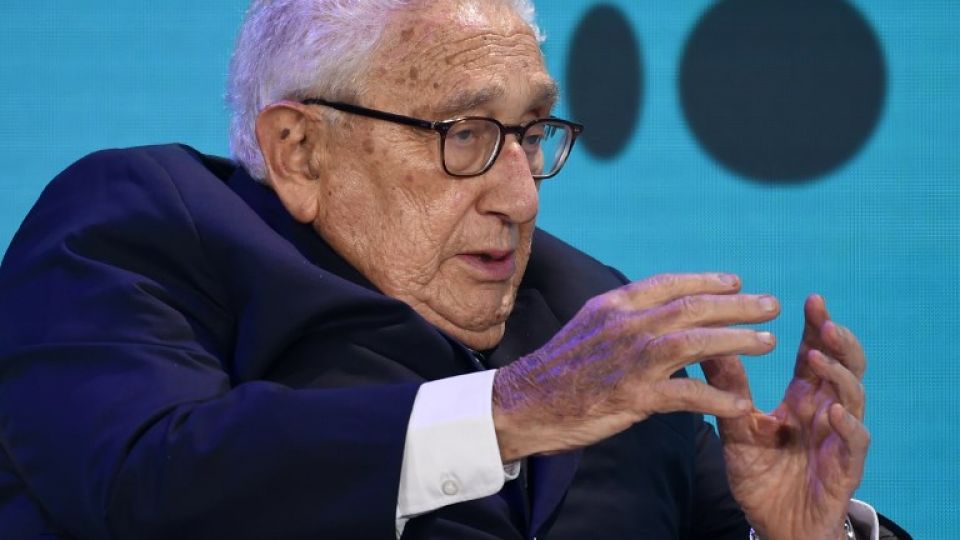November 7, 2018
Henry Kissinger said that US and Chinese trade negotiators should avoid getting bogged down in details and first explain to each other what objectives they are seeking to achieve.
As the chief architect of the United States’ outreach to communist China more than four decades ago, former diplomat Henry Kissinger could be forgiven for viewing the current tension between the two countries with some dismay.
But the truth is, though Sino-US relations are at the lowest they have been for years, Dr Kissinger remains optimistic that the two will not come to such blows that it would shake the global order.
However, both parties need to rebalance their perspectives, in the same way that their leaders had sought to explain their thinking to each other and find sufficient understanding 40 years ago, said Dr Kissinger, 95, who is widely regarded as one of the top strategic thinkers in the world.
When he knocked on China’s door as Washington’s emissary with his historic trip to Beijing in 1971, his mission was to begin the strategic change in the equation of the Cold War between the US and the then Soviet Union, and bring China into the international order.
“We knew very little of China but they knew a lot about us, because Chinese negotiators had read everything I’d ever written,” said Dr Kissinger to laughter in the ballroom of the Capella Singapore, where he was speaking on Tuesday (Nov 6) at the inaugural Bloomberg’s New Economy Forum.
That secret visit by Dr Kissinger, who was national security adviser, paved the way for President Richard Nixon’s trip the following year, where he met Chinese leader Mao Zedong and subsequently established diplomatic relations.
China’s economic might has grown leaps and bounds since then, and while Nixon and Mao had sought to find common ground despite the wide disparity, Sino-US relations today have soured as the two major powers tussle for dominance.
“The challenge is to maintain a fundamentally cooperative relationship amid inherent differences of approach produced in large part by the changing technology and in some part due to the different philosophical approaches to challenges between the United States and China,” said Dr Kissinger, who was also US Secretary of State from 1973 to 1977.
“I believe that it is essential for China and the United States to explain to each other what the objectives are that they feel they must achieve and what the concessions are that they must not be asked to make, and the concessions each is willing to make, and not to get lost in a lot of detail before you know where you’re trying to go.”
A fundamental difference between US and Chinese thinking, he says, is that if there’s a problem, Americans believe there will be a short-term solution, while the Chinese think problems are never completely solved and every solution is a ticket to a new set of problems.
“I think if the world order becomes defined by continuing conflict between the US and China, sooner or later, it runs the risk of getting out of control,” he said.
“Some disagreements are inevitable. But the objective needs to be that both countries recognise that the fundamental conflict between them will destroy hope for the world order. That objective can be achieved, and I’m fairly optimistic that it will be achieved.”
Adaptation is needed on both sides: Americans have to learn that not every crisis is caused by ill will and that there is a difference between educating people and learning to cooperate with them.
China, which has not had the experience of being in a relationship of balance as it has historically been the dominant country in the region, will have to recognise there is now a balance of power.
Dr Kissinger is among 400 business and government leaders who have gathered in Singapore for the first Bloomberg New Economy Forum, hosted by media mogul and former New York mayor Michael Bloomberg.


